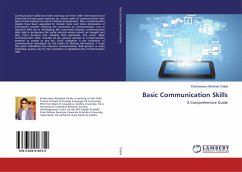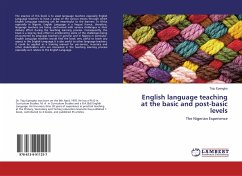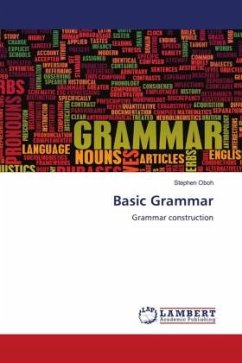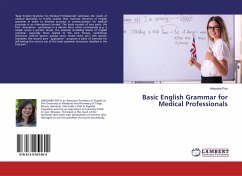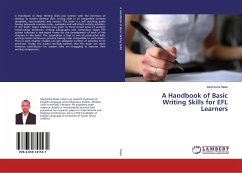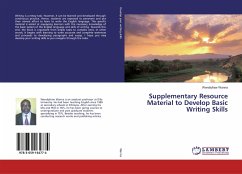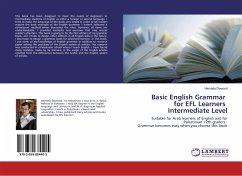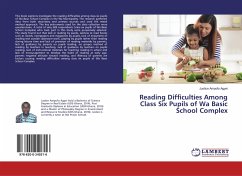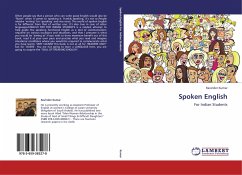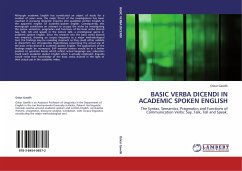
BASIC VERBA DICENDI IN ACADEMIC SPOKEN ENGLISH
The Syntax, Semantics, Pragmatics and Functions of Communication Verbs: Say, Talk, Tell and Speak.
Versandkostenfrei!
Versandfertig in 6-10 Tagen
52,99 €
inkl. MwSt.

PAYBACK Punkte
26 °P sammeln!
Although academic English has constituted an object of study for a number of years now, the major thrust of the investigations has been couched in pursuing linguistic inquiries into academic written English to the apparent neglect of academic spoken English. Consequently, this monograph constitutes an attempt to occupy the niche by investigating the syntax, semantics, pragmatics and functions of the basic verba dicendi (say, talk, tell and speak) in the lecture talk, a prototypical genre in academic spoken English. Since the research into the basic verba dicendi was empirical, drawing on corpu...
Although academic English has constituted an object of study for a number of years now, the major thrust of the investigations has been couched in pursuing linguistic inquiries into academic written English to the apparent neglect of academic spoken English. Consequently, this monograph constitutes an attempt to occupy the niche by investigating the syntax, semantics, pragmatics and functions of the basic verba dicendi (say, talk, tell and speak) in the lecture talk, a prototypical genre in academic spoken English. Since the research into the basic verba dicendi was empirical, drawing on corpus linguistics as a major methodological tool, the findings may be revealing inasmuch as they could either validate or disconfirm our introspective (hypo)theses concerning the actual use of the basic verba dicendi in academic spoken English. The applications of the findings might be numerous: EAP material writers would be in a better position to generate books which reflect actual language use; educators could teach academic spoken English which is actually employed; linguists would revise their knowledge of the basic verba dicendi in the light of their actual use in the academic milieu.



